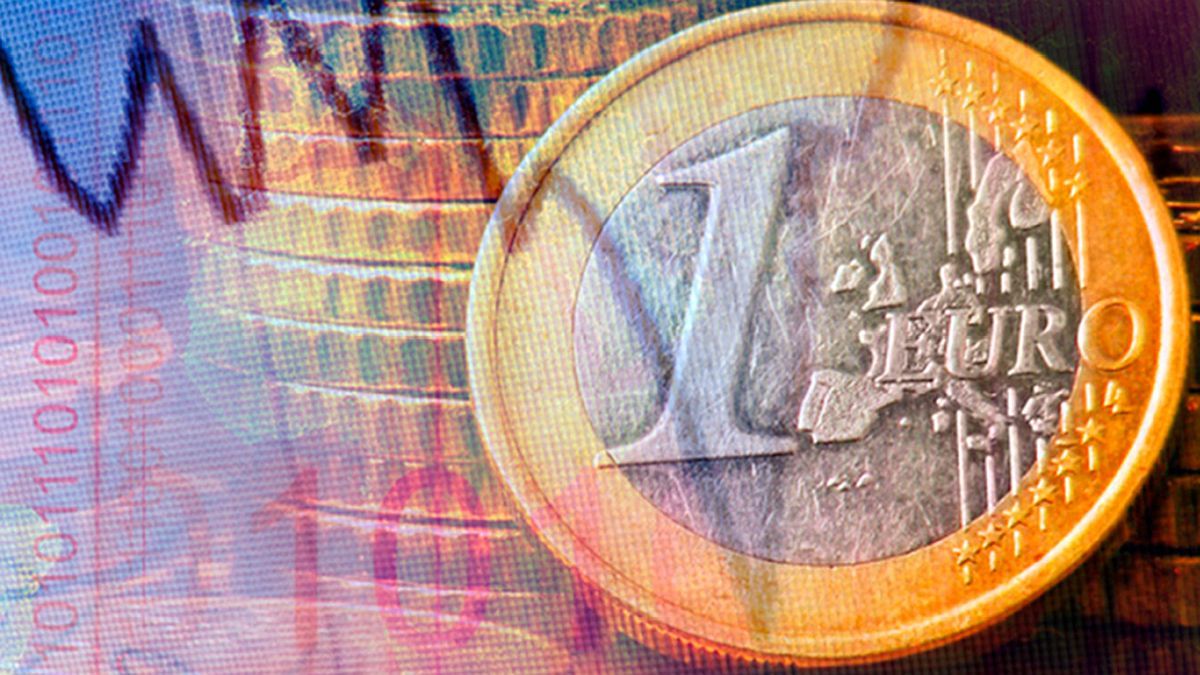The eurozone entered a technical recession. In the first quarter of the year, the Gross Domestic Product (GDP) registered a contraction of 0.1%, which is added to the drop in the economic activity of 0.1% in the fourth quarter of 2022, according to data published by Eurostat, the community statistical office.
The data represents a downward revision of two tenths compared to the previous data published in mid-May, when Eurostat estimated that the GDP of the euro zone had grown 0.1% between January and March.
Meanwhile, throughout the European Union (EU) the economy advanced 0.1% in the first quarter, after contracting 0.2% in the fourth quarter of last year.
By components, during the first quarter of 2023, household final consumption expenditure decreased by 0.3% both in the euro area and in the EU. For its part, government final consumption spending fell by 1.6% in the euro area and 0.9% in the EU, gross fixed capital formation increased by 0.6% in the euro area and 0 .3% in the EU, exports decreased by 0.1% in the euro zone and increased by 0.1% in the EU and imports decreased by 1.3% in both the euro zone and the EU.
Which were the countries that registered the most growth?
Poland (+3.8%) recorded the largest increase in GDP compared to the previous quarter, ahead of Luxembourg (+2%) and Portugal (+1.6%). By contrast, the largest decreases were observed in Ireland (-4.6%), Lithuania (-2.1%) and the Netherlands (-0.7%).
Spain registers the highest economic growth. Between January and March, GDP increased by 0.5% in the first quarter of 2023, compared to growth of 0.4% in the three previous months. Meanwhile, the GDP of France increased by 0.2% and that of Italy, by 0.6%. Germany, for its part, also entered a technical recession by registering a contraction of 0.3%, after the fall of 0.5% in the three previous months.
Although the stagnation of the economy “marks a clear break from the recent post-pandemic boom”, for ING analysts the fall “is so minimal and the labor market is so strong that it is difficult to argue that it is a recessionary environment”. .
// ECB President Mario Draghi said uncertainty about the inflation outlook in the euro zone continues to recede.
ECB President Mario Draghi said uncertainty over the inflation outlook in the euro zone continues to recede.
What can happen in the economy for the second quarter
Nevertheless, come “quick rebound in Q2 unlikely” and they believe it is possible “that we will only get a modest rebound after two quarters of recession.” For their part, the experts from Capital Economics consider it “probable that GDP contract again in the second quarteras the effects of monetary policy tightening continue to be felt”.
At Oxford Economics they expect “only mild growth”: “In the future, growth will remain weak despite falling wholesale energy prices, as monetary policy tightening reduces investment and still-present inflationary pressures limit consumption.”
In detail, they point out that the breakdown of data shows how the growth environment “is unfavorable, since the aggregate GDP figure was favored by a considerable drop in imports. In fact, domestic demand is not in a good place, with public spending registering the biggest contraction, except for the first wave of lockdowns and the fall in private consumption. In addition, the contribution to inventory growth was negative, suggesting that destocking will continue to weigh on growth. By contrast, investment rose modestly, but this is not likely to last amid strong headwinds from tighter financial conditions.”
Source: Ambito




